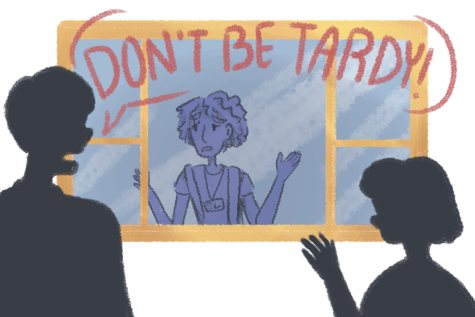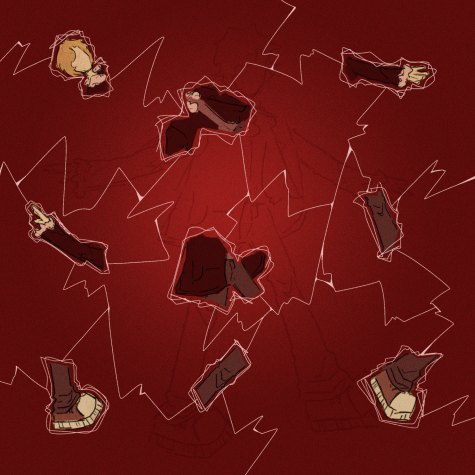Media Review: Taylor Swift’s Midnights

When my friend saw the video of me reacting to Midnights — with a scream or two, a few jumps, flailing arms, and perhaps an unusual amount of tears — he thought it was a college acceptance video, and I had just gotten into my dream school. Now that I think about it, I don’t blame him. Listening to the album for the first time threw me into a loop of both excitement and awe.
Midnights, Taylor Swift’s tenth studio album, shattered several records within the first week of its release. The songs on this pop album were written about her sleepless nights, encapsulating both her nightmares and sweet dreams. It’s filled with songs surrounding how others perceive her, analyses of past relationships, and raw love. Taylor Swift’s songwriting on Midnights reveals deeper meaning through powerful, feministic, and vulnerable lyrics.
The strongest aspect of Taylor Swift’s songs is her elegant and sophisticated songwriting, and her lyrical genius delivered yet again in Midnights. In “Labyrinth,” angelic echoes mix with parallel syntax to paint a picture of the trust needed to fall in love again after being in a taxing relationship. She writes, “Break up, break free, break through, break down. You would break your back to make me break a smile.” This illustrates the sacrifice some people would go through to bring back their happiness.
Midnights displays Swift’s most mature feminist writing by straying away from cliched mantras and diving into feminism in the context of relationships. Upbeat anthems like “Bejeweled” and “Midnight Rain” portray Swift leaving a relationship due to a lack of deserved recognition and a desire for independence. “Mastermind” is about crafting a cryptic plan for a perfect relationship, despite being consistently underestimated as a woman. “You see all the wisest women had to do it this way, ‘cause we were born to be the pawn in every lover’s game,” Swift writes. Society views her as a pawn — someone weak and without control — when in reality, she holds discrete dominance which is demonstrated in the following lyric: “I’m the wind in our free-flowing sails and the liquor in our cocktails.”

In an interview with talk show host Jimmy Fallon, Swift called Midnights her “first directly autobiographical album in a while.” As a result, it was a bittersweet release because she wanted to share her vulnerability through the record, but also felt very fragile with millions of people listening. However, Swift’s honesty triggers a whirlwind of emotions that allow fans to better connect to the album. In “You’re On Your Own, Kid,” she opens up about her eating disorder and how she perceives herself. She writes, “I gave my blood, sweat, and tears for this. I hosted parties and starved my body like I’d be saved by a perfect kiss.” In “Would’ve, Could’ve, Should’ve,” Swift reflects on a toxic relationship, confessing all her regrets. The track’s bridge and outro build the instruments as the desperation in her voice seems to grow into a cry for help. She sings, “And now that I’m grown, I’m scared of ghosts. Memories feel like weapons,” and, “I fight with you in my sleep. The wound won’t close.” The pain and vulnerability revealed in these lyrics left me stunned and empathetic, as it opened the door for listeners to understand how she was wrongfully judged for this toxic relationship.
Swift writes about her personal experiences — including relationships, body image, and others’ external perceptions — which allows her audience to form individual connections through relatable songs. Midnights is a record with some of her best songwriting to date, and its addicting tracks are a result of lyrics only a mastermind could write.

Kelcie is a senior at Lowell who can be found in the journ room working, drinking coffee, and listening to music. Her older brother once mentioned that there are only three guarantees in life: death, taxes, and Kelcie not waking up to her alarms. She also happens to have a paradoxical relationship with chicken… go figure.








